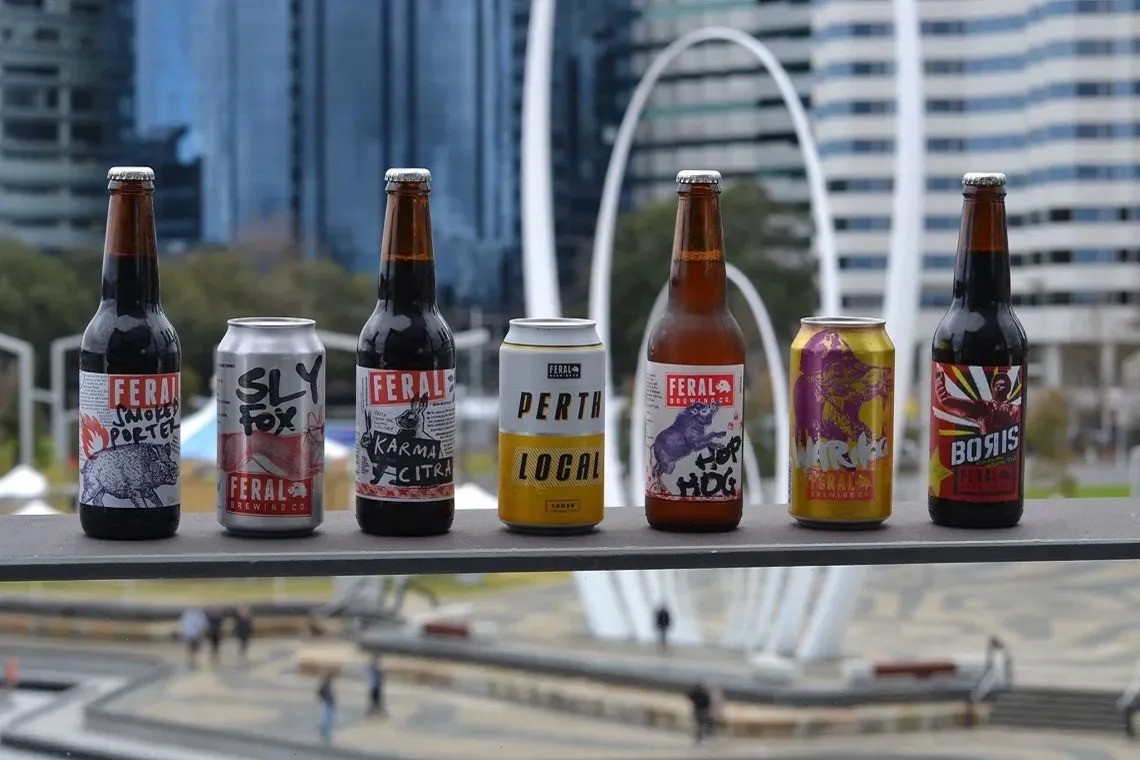The Western Australian Government has launched its WA Craft Beer Strategy, a 10-year plan to support craft brewing throughout the supply chain.
The WA government developed the strategy alongside key industry bodies, the Independent Brewers Association (IBA), Western Australian Brewers Association (WABA), and South West Brewers Alliance (SWBA).
Home to more than 120 breweries across the state, and representing 20 per cent of the national industry, WA is of high importance to the national craft brewing industry. Many consider WA to be the birthplace of Australian craft beer, beginning with the establishment of craft breweries in Perth in the 1980s and 1990s.
Likewise, beer is an important part of the culture, tourism industry, and economy of WA. According to the Department of Industries, beer contributes a total $648 million to the state’s economy, directly supporting more than 960 full-time jobs and indirectly supporting another 4,000.
Agriculture and Food Minister Jackie Jarvis said that the new WA Craft Beer Strategy aims to support this important and wide-reaching industry.
“Western Australia is the craft beer capital of Australia, and we want to help the local industry continue to out-brew eastern states competitors and even quench the thirst of global markets. Our craft beer industry uses premium ingredients grown in the state’s agricultural sector and it’s that unique WA paddock to pint experience that an increasing number of customers are drawn to.
“It’s also a major draw card for tourists with more than 120 breweries across the state, half of which are in our regions. The inaugural Western Australian Craft Beer Strategy will lay the groundwork for industry, government and other stakeholders to collaborate and shape the future of the craft beer industry,” she said.
According to Kylie Lethbridge, CEO of the IBA, the WA Craft Beer Strategy is one of several craft beer support plans set in place throughout the country.
“We’re a national body, and the vast majority of our efforts and our resources go into supporting the industry from a nationwide perspective. One of the things that I set out to do when I started with the IBA was to ensure that there was support in place in each state and territory. We’re almost there with a South Australian plan we’re working on, and we’re just about to launch a Tasmanian plan,” she said.
“For the last 12 months, the WA government, the IBA, WABA, and SWBA have been working together to develop that strategy. Now, we’re all systems go since the premier launched that plan last week.”
Strategic goals
The strategy identified three key strengths of the WA craft beer industry: its uniqueness, its continued growth, and the strong collaborative culture between breweries and other businesses in the supply chain.
From this, five strategic priorities have been developed, which are building industry leadership, growing brand awareness, expanding market access and export opportunities, managing the supply chain, and ensuring industry regulation.
To strengthen industry leadership, a single leadership body will be created to advocate for and promote the WA craft beer industry, with the support of the IBA, WABA, and SWBA. This leadership body will gather data about the state of the craft brewing industry, and support business owners and the workforce through training and skill-building packages.
Increasing brand awareness of WA beer will both increase the state’s appeal to tourists, as well as encourage craft beer fans to purchase WA beer. This will be supported by explorations of wider markets, with the intention to bring WA beer to both interstate and international consumers.
Additionally, the paddock to pint supply chain will be supported by investing into local WA businesses to enable them to cope with demand. This will be supported by research and development into sustainability to ensure the industry’s longevity.
Supporting the farmers and growers that supply ingredients for WA breweries is an important part of the strategy, according to Lethbridge.
“We’re looking at some data objectives to determine a baseline about the effectiveness of the circular economy, and we’re looking into how we can help existing suppliers to grow and working with farmers to generate better yield from some of their crops,” she said.
Finally, the strategy will ensure that the WA craft beer industry can work alongside the state and federal government, as well as identifying and tackling regulatory barriers. Additionally, quality will be normalised across the industry through the development of a set of industry-led quality standards.
The wide-reaching 10-year strategy is a welcome recognition of the importance of craft beer to WA, and evidence of tis potential to grow in size, quality, and impact.

